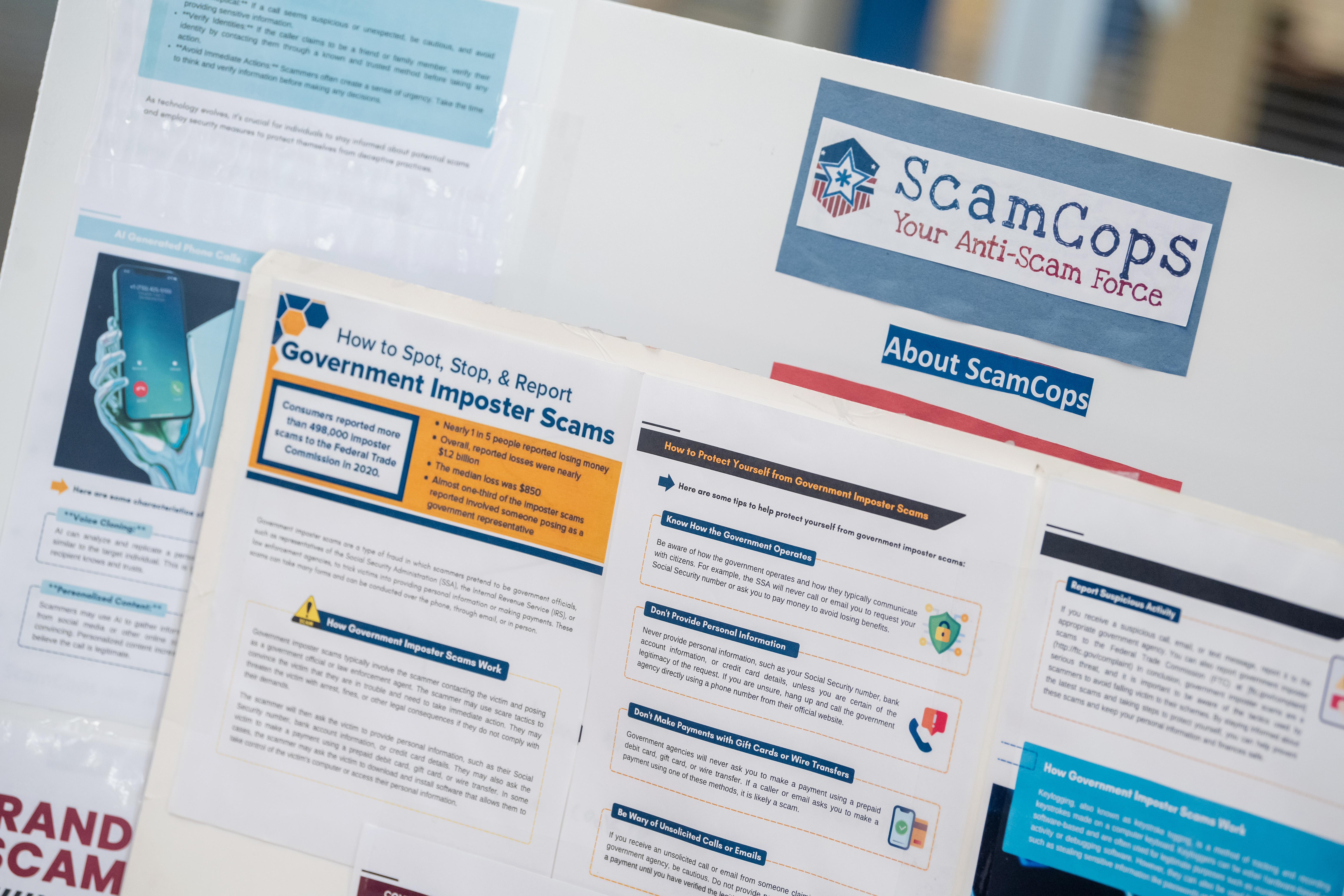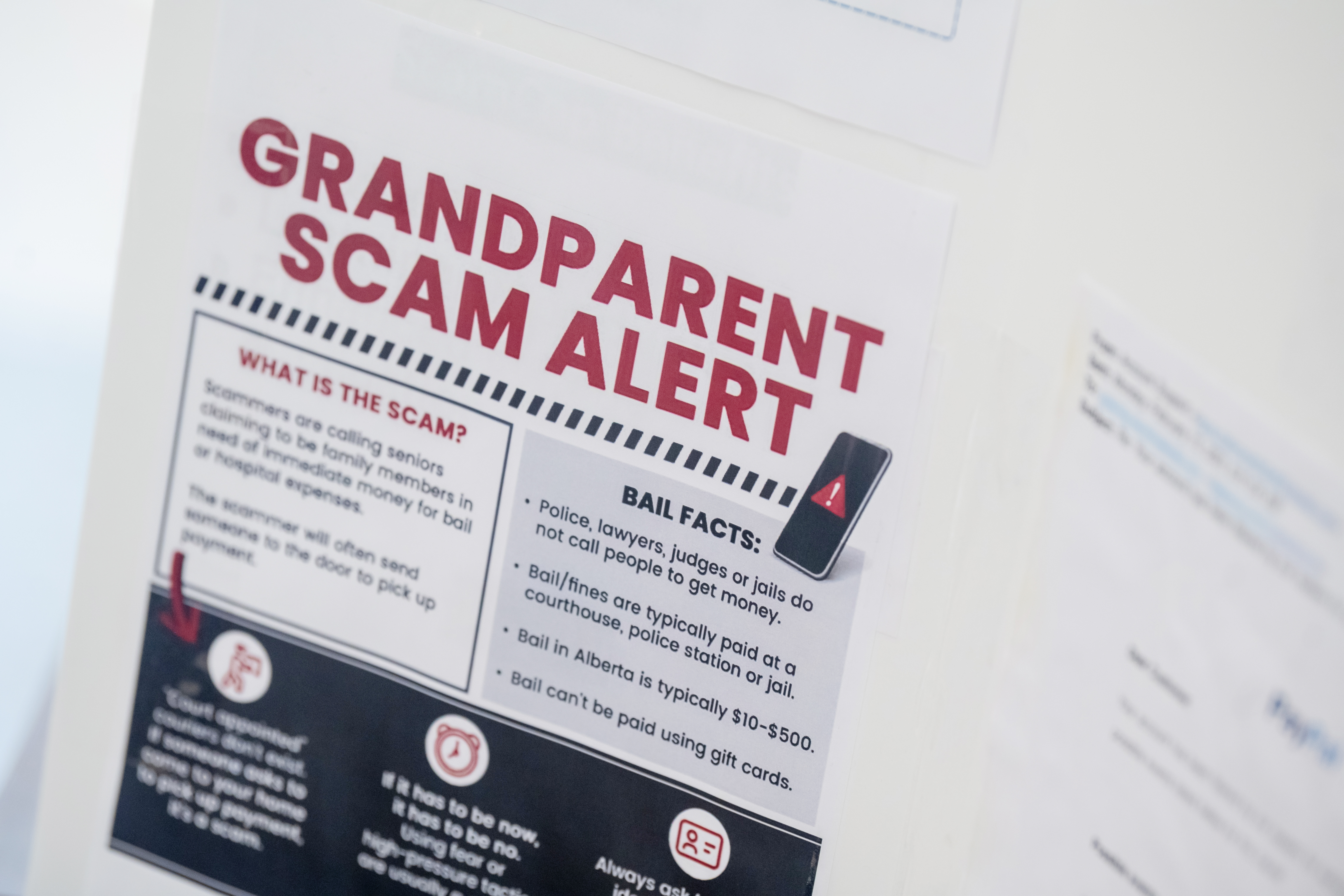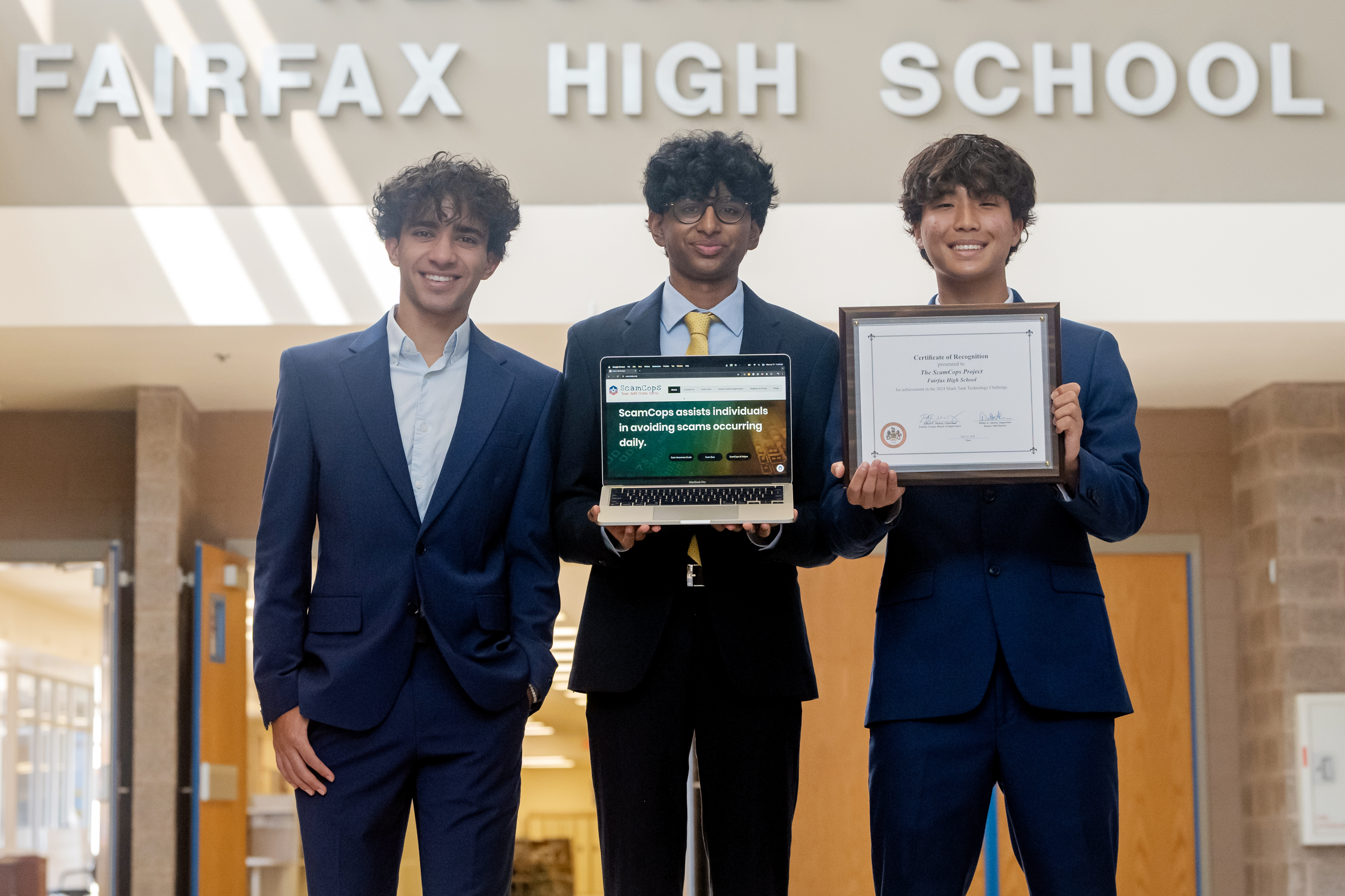ScamCops: Fairfax High School Students Design Award-Winning Scam Detection App
Fairfax High School senior Advik Atyam once thought scams couldn’t fool him. That changed in the eighth grade, when he fell victim to a scam while buying and selling computer parts online.
“I felt like I was a tech savvy person,” Advik recalled. “I played video games, I knew how to code, so I didn’t think this would happen to me.”
His classmate, David Nam, had a similar experience: “My family and I are very technology oriented,” he said, “so when my family and I got scammed, it was a bit surprising.”

Both Advik and David walked away with the same lesson: no one is safe from scammers, and something had to be done. Advik created a website to educate anyone about potential scams in their everyday lives, and launched a school club to spread awareness. After sharing their stories, Advik, David, and classmates Nathan Kim and Yousif al Atbi, developed Advik’s website into something bigger.
The website, called ScamCops, is designed with senior citizens in mind. The website’s blog features many easy-to-read tips on how to identify many types of common scams. It also features a 25-question quiz so users can test their knowledge about the latest scams in their area. The site’s crown jewel is an integrated AI chatbot that can help users identify scams from a description the user types in.
The students’ work recently received local recognition. In May, ScamCops won first place in the 2024 Fairfax Area Student Shark Tank Technology Challenge.
“We were pretty shocked,” said Advik. “We were in a Zoom meeting, they told us we got first place and I just couldn’t believe it. But it sunk in when we went to the award ceremony, met all these great people, and then I realized that we did it.”
“It’s really nice to see, because it shows us that our hard work pays off,” remarked Yousif, “and it puts into perspective that this is something that can go somewhere and we can grow our network.”

ScamCops is already growing, and fast. Development on the app started as a Fairfax High School club, but has expanded into a non-profit, allowing the students to perform outreach at retirement homes. The website reached 2,000 views this year and has active users across 36 countries. The students rely on overseas relatives to get the word out in their home countries. Locally, they’re expanding their network of “cops” — high school student volunteers who give scam prevention presentations to senior citizens.
There are plans to further develop and improve the site. Advik, David, Nathan and Yousif usually meet once a month to designate tasks. In the coming months, they plan to update the AI chatbot so it can identify scams from screenshots. The students also want to grow ScamCops’ presence on social media.
“We want to improve on the outreach side,” David explained, “because we really believe that ScamCops should be something that everyone in our country, and maybe even the world, can utilize to stay safe online.”

According to the Federal Trade Commission, consumers lost more than $10 billion to fraud in 2023. It’s the first time fraud losses have ever reached that benchmark. Through ScamCops, the students say they’re doing their part to protect family and friends from a growing problem.
“We met people at retirement homes, they can lose their entire life savings in a matter of 30 seconds,” said Advik, “and it’s unfair because they’re the most vulnerable.”
Yousif agreed. “I strongly believe when you see a group of people who need help, it’s our job and duty to help as much as we can,” he said, “and that’s what we’re trying to do with ScamCops.”

